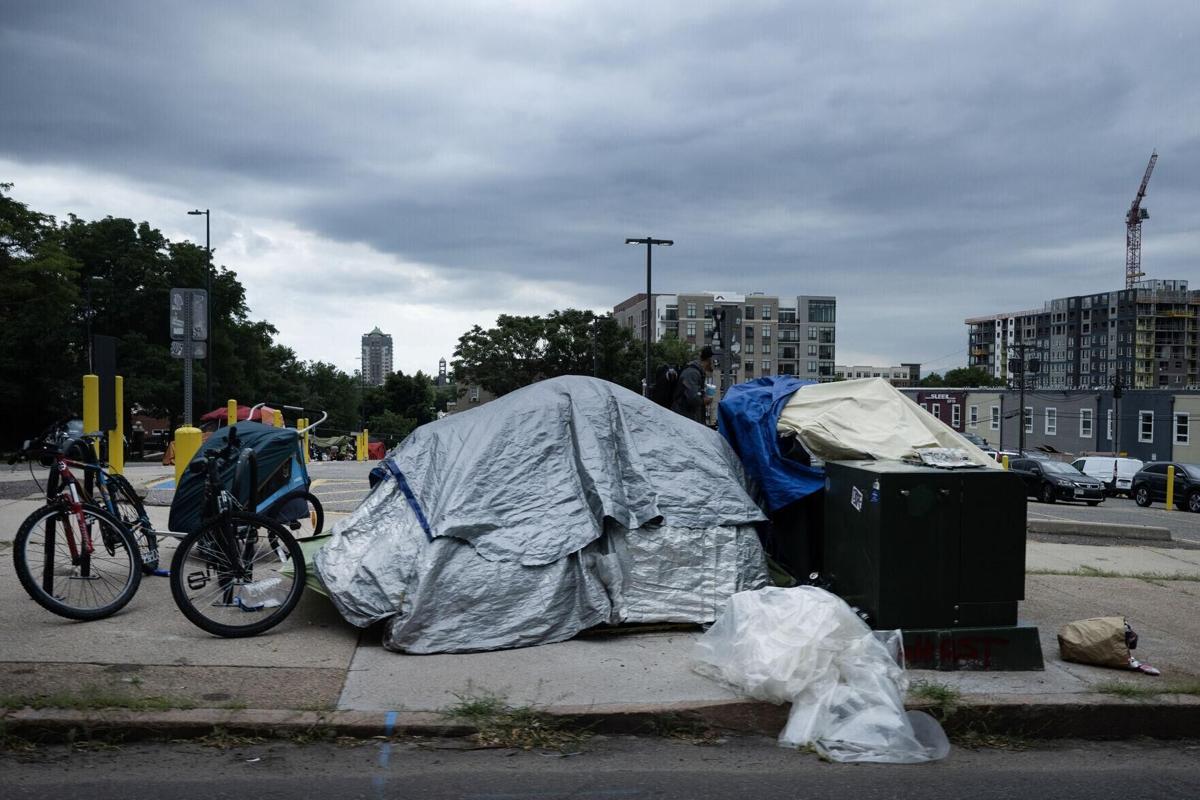Addiction dominates life on the street | Denver Gazette

Alarming and tragic data reported by The Gazette this week on our state’s overdose epidemic offer a potent reminder of what is really driving – and destroying – the homeless population on our streets.
Don’t blame economic injustice; no one has stacked the deck against the drifters who pitch their tents and lean-tos in parks and other public places in urban areas along the Front Range. Neither is the state’s affordable housing crunch – truly a vexing problem in its own right – at fault.
For most of those who seemingly are stranded on the streets, it’s about substance abuse and the pathologies that go with it.
Numbers on overdose deaths for the state’s largest city and epicenter of street homelessness, Denver, underscore the point – and have implications for policymaking statewide.
Stay up to speed: Sign up for daily opinion in your inbox Monday-Friday
As The Gazette reported, homeless people made up 38% of Denver’s overdose deaths last year, according to Denver’s Office of the Medical Examiner.
That’s out of the 522 who died from drug overdoses – the most since tracking of overdose deaths began in 1923. About 40% of that record number of fatal overdoses involved fentanyl. And there still are 136 cases awaiting final toxicology testing by the office, so the total for 2023 will end up even higher.
The Colorado Department of Health and Environment recorded 1,454 drug overdose deaths among residents in 2023, although final numbers won’t be available until summer. It’s a reasonable assumption that, as in Denver, a disproportionate share of those statewide deaths involved homeless people on the streets.
It’s also worth noting that of Denver’s overdose total, nearly two thirds occurred indoors. Presumably, a lot of those who overdosed indoors also were street dwellers even if they only were under a roof long enough to buy their fix and die from it.
Which lends cruel irony to Denver Mayor Mike Johnston’s much-publicized push to move at least 1,000 of the city’s street people inside by the end of 2023 – without setting expectations for them to curb their substance abuse.
And that, after all, is the real upshot of the data. The Johnston administration spent $45 million in tax dollars in record time to acquire hotels, buy “tiny” shelters and set up “microcommunities” to accommodate the city’s urban “campers.” Yet, the effort only reshuffled people who can’t sustain themselves – whether in a tent or a hotel room.
The street dwellers in most Colorado cities are by and large addicted to drugs or alcohol. For many, that also has led to their declining mental and physical health. It’s what has kept most of them on the streets. And it is their addictions that need to be addressed.
Politically fashionable but, ultimately, unworkable policies labeled “housing first” – like Denver’s – can achieve little lasting success. That approach houses habitual street denizens – so they can continue the lifestyle that landed them on the streets in the first place.
Without requiring their rehabilitation from addiction, we can rest assured most of them will return to the streets sooner or later.
Our state’s policymakers failed them in the first place with liberalized drug laws. The Legislature even decriminalized simple possession of hard drugs in 2019 – opening the floodgates wider to cartels and street pushers, assuring more addicts and overdoses.
“Housing first” policies fail many of those same addicts all over again, subsidizing a lifestyle that is destined to kill them. The numbers make that clear.
Denver Gazette Editorial Board














